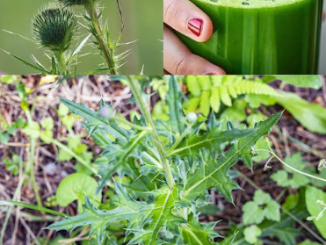
Protein is a fundamental building block of life. It’s essential for building and repairing tissues, supporting muscle growth, producing enzymes and hormones, and maintaining strong bones, hair, and skin. Whether you’re an athlete, a growing teen, or just trying to stay healthy, eating enough high-quality protein is key to a balanced diet.
But not all protein sources are created equal. Some come packed with unhealthy fats or excess calories, while others offer impressive nutritional value along with essential vitamins and minerals. In this article, we’ll explore the best high-protein foods that promote overall health and can be part of any lifestyle—whether you’re vegetarian, vegan, or a meat eater.
Why Protein Matters
Before diving into the foods, let’s understand why protein is so important:
- It builds and repairs tissues (including muscles).
- It helps in hormone and enzyme production.
- It keeps you full longer, aiding in weight management.
- It supports immune function.
- It prevents muscle loss as you age.
Now, let’s explore some of the healthiest protein-rich foods you can enjoy.
1. Eggs
Eggs are one of the most complete and bioavailable protein sources out there. A single large egg contains about 6 grams of high-quality protein, including all nine essential amino acids.
Benefits:
- Affordable and versatile
- Rich in vitamins B12, D, and selenium
- Supports brain and eye health
Boiled, scrambled, or poached, eggs are an easy way to start your day with a protein boost.
2. Greek Yogurt
Greek yogurt is thicker and more protein-dense than regular yogurt. A 6-ounce serving can provide 15–20 grams of protein, making it an excellent snack or breakfast option.
Benefits:
- High in probiotics, which promote gut health
- Contains calcium for strong bones
- Low in sugar if you choose plain, unsweetened varieties
Top it with berries and nuts for a delicious and nutritious combo.
3. Chicken Breast
Skinless chicken breast is a staple for many health-conscious eaters, and for good reason. It delivers around 26 grams of protein per 3-ounce serving, with very little fat.
Benefits:
- Lean source of complete protein
- Helps maintain muscle mass
- Versatile in cooking: grill, bake, stir-fry
Opt for organic or hormone-free options when possible.
4. Lentils
Lentils are a powerful plant-based protein source, with about 18 grams of protein per cooked cup. They are a staple in vegetarian and vegan diets for good reason.
Benefits:
- Rich in fiber, which aids digestion
- Supports heart health and blood sugar control
- Inexpensive and shelf-stable
Use them in soups, salads, or as a meat substitute in tacos or burgers.
5. Quinoa
Unlike most grains, quinoa is a complete protein, meaning it contains all nine essential amino acids. One cooked cup offers about 8 grams of protein.
Benefits:
- Gluten-free and easy to digest
- High in fiber and magnesium
- Works well in both savory and sweet dishes
It’s perfect as a base for grain bowls or as a replacement for rice or pasta.
6. Fish (Especially Salmon, Tuna, and Sardines)
Fish provides high-quality protein along with heart-healthy omega-3 fatty acids. For example, a 3-ounce serving of salmon has about 22 grams of protein.
Benefits:
- Reduces inflammation and supports brain health
- Great for heart health
- High in vitamin D and B12
Try to include fatty fish like salmon or mackerel 2–3 times a week for maximum benefit.
Video : 24 High Protein Foods That You Should Eat Regularly
7. Cottage Cheese
Cottage cheese is another dairy-based protein powerhouse, offering up to 14 grams of protein per half-cup serving.
Benefits:
- High in casein, a slow-digesting protein ideal for overnight muscle repair
- Low in calories and fat (depending on the variety)
- Rich in calcium and B vitamins
Great as a snack with fruit or even as a substitute for ricotta in recipes.
8. Tofu and Tempeh
These soy-based products are excellent plant-based proteins, especially for vegetarians and vegans. Tofu offers around 10 grams of protein per half-cup, while tempeh provides even more—around 15–20 grams per serving.
Benefits:
- Complete proteins with all essential amino acids
- Rich in iron, calcium, and magnesium
- May reduce the risk of heart disease and some cancers
Both are highly versatile and absorb the flavor of whatever they’re cooked with.
9. Nuts and Seeds
While not as high in protein per serving as animal products, nuts and seeds offer a nutritious mix of healthy fats, fiber, and plant-based protein.
High-protein options include:
- Almonds (6g per ounce)
- Pumpkin seeds (7g per ounce)
- Chia seeds (4g per 2 tablespoons)
- Peanut butter (8g per 2 tablespoons)
Benefits:
- Promote heart health
- Help control appetite
- Packed with antioxidants and micronutrients
Keep in mind they are calorie-dense, so enjoy them in moderation.
10. Beans (Black Beans, Chickpeas, Kidney Beans)
Beans are affordable, filling, and rich in protein and fiber. One cup of cooked black beans has about 15 grams of protein.
Benefits:
- Support gut health
- Help regulate blood sugar
- Provide essential vitamins and minerals like folate and iron
Use them in stews, salads, or blended into dips like hummus.
11. Lean Beef or Turkey
For meat-eaters, lean cuts of beef or ground turkey can be excellent sources of protein. A 3-ounce serving of lean beef contains about 22 grams of protein.
Benefits:
- Rich in iron and zinc
- Helps build and maintain muscle
- Satisfying and filling
Choose lean cuts like sirloin or ground turkey breast to avoid excess saturated fat.
12. Edamame
These young soybeans are not only delicious but also packed with protein—offering around 17 grams per cup when cooked.
Benefits:
- High in antioxidants and fiber
- Helps support bone health
- Perfect as a snack or appetizer
Steam and season with a pinch of salt or toss into salads and rice bowls.
Tips for Including More Protein in Your Diet
- Start your day with a high-protein breakfast (like eggs or Greek yogurt).
- Add nuts or seeds to oatmeal, smoothies, or salads.
- Choose protein-rich snacks like cottage cheese, boiled eggs, or roasted chickpeas.
- Incorporate plant-based proteins like beans or lentils into at least one meal daily.
- If you’re active or trying to build muscle, consider protein-rich meals after workouts.
Video : ✅ High Protein Foods || Protein Rich Foods For Weight Gain
Final Thoughts
Protein is essential not only for building muscle but for keeping every part of your body functioning at its best. The good news is that there’s a wide variety of protein-rich foods—both plant- and animal-based—so you don’t have to rely on just one source. By incorporating a balance of these high-protein, nutrient-dense options into your diet, you can improve your energy levels, support your metabolism, and enhance overall health.
No matter your dietary preference, there’s a protein source that fits your lifestyle. Start today by making small changes, and your body will thank you in the long run.


